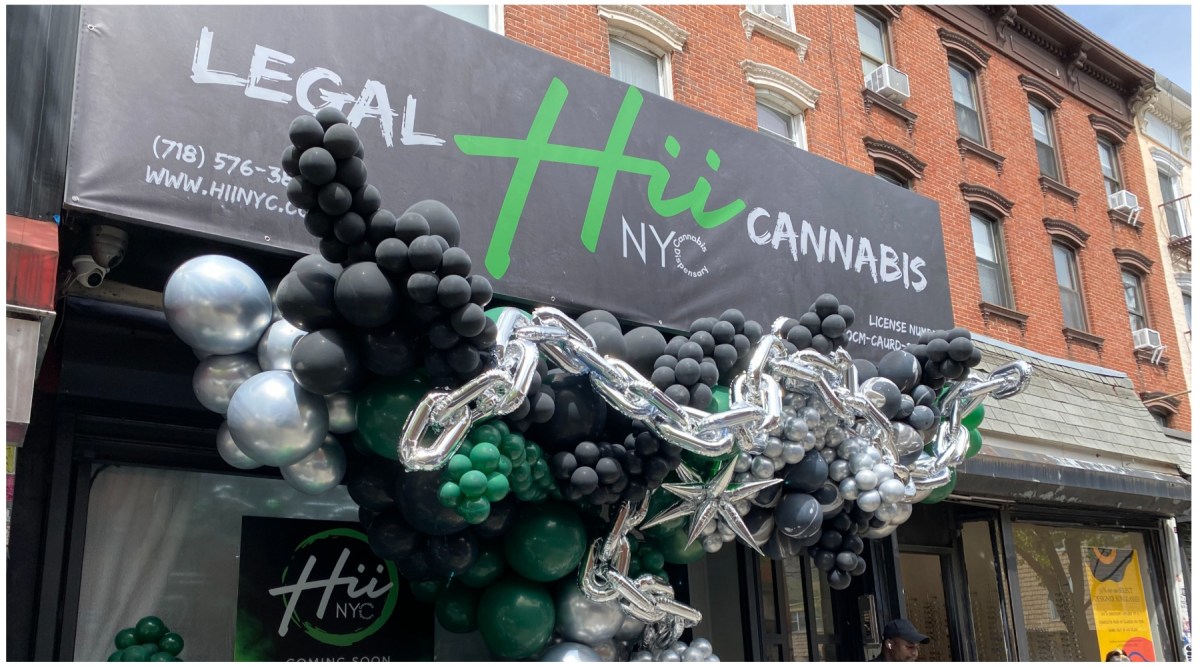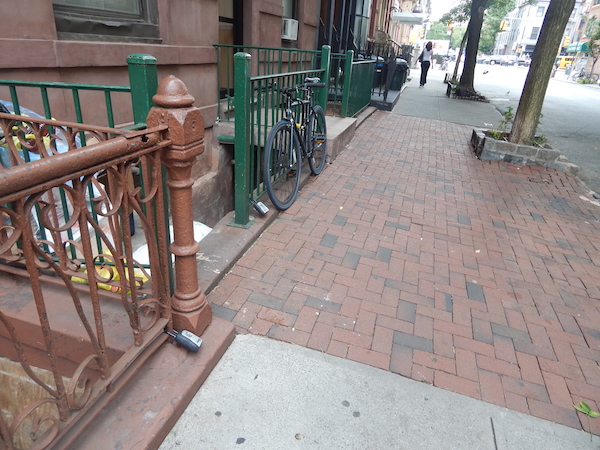
BY DUSICA SUE MALESEVIC | An increase in key lockboxes has some residents concerned about safety, as they point to home-sharing sites that use the key keepers so people can gain entrance to buildings.
A host can put the keys in a lockbox, giving their guest the combination to open the keeper. Those who make their residential spaces available to others via short-term rental sites — Airbnb, HomeAway, VRBO, Flipkey, and Craigslist — use the lockboxes if they cannot hand over keys in person. Realtors also use key lockboxes.
Last week, Chelsea Now counted 11 key keepers on W. 21st St., btw. Eighth and Ninth Aves. Some were discreetly placed, hidden behind bikes or garbage cans. Others were easily spotted, out in the open and affixed to tree guards and fences. In front of one building on the block, four key keepers dotted a tree guard’s perimeter.
“It affects your quality of life — you don’t know who your neighbor is,” Pamela Wolff said. “It’s uncomfortable.”
Wolff is a member of the Chelsea West 200 Block Association, which encompasses W. 20th, W. 21st and W. 22nd Sts., btw. Seventh and Eighth Aves. Wolff, a longtime resident of W. 21st St., noted one particular building’s frequent use of a linen service.
“Clearly there is an operation going on there,” she said.
Wolff told Chelsea Now she has seen groups of people on her block towing suitcases, opening the lockboxes and then getting into buildings. Sometimes visitors have problems with the lockboxes and ask neighbors for help, she added. This has happened to Wolff, who said the visitors told her they were using Airbnb.
“It’s destabilizing the neighborhood,” Wolff said. “When we lose that stability… it can become a frightening experience. Suddenly everyone is suspicious of everyone else. And suspicion breeds fear.”
Another W. 21st St. resident, who spoke on the condition of anonymity, said she first noticed a few key keepers a year ago and that recently there has been a spike in the lockboxes.
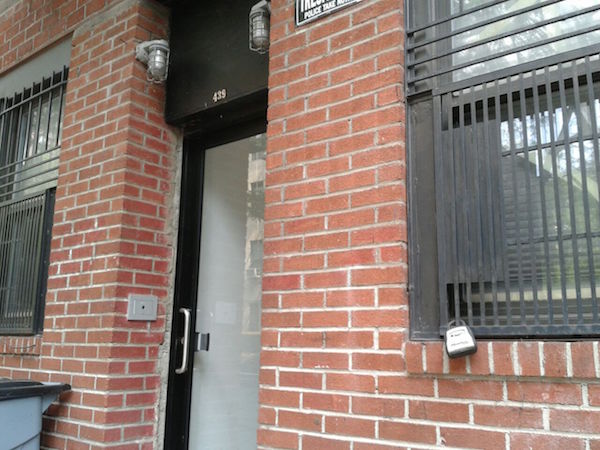
Hell’s Kitchen resident Tom Cayler, who has advocated against illegal hotels since 2003, said residents are scared to go on the record because they fear their landlords are listing units on home-sharing sites, and will target them.
Another longtime Chelsea resident, who also spoke on the condition of anonymity, said she feared retribution from neighbors. She said that while she understood the economics of putting your apartment on a short-term rental site, the constant influx of transient people into the neighborhood was weakening the fabric of the community.
“It undermines the kind of neighborhood cooperation we’ve had for the last 40 years,” she said.
Cayler has seen several lockboxes in Chelsea and Hell’s Kitchen, saying, “They’re a common sight now,” he said, adding, “The biggest concern is you have no idea who is in your building.”
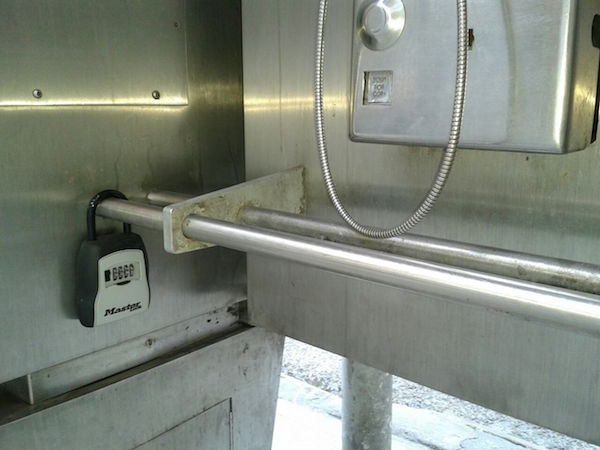
There are other quality of life issues as well, as visitors on vacation might be louder or make more noise than a resident who has to work the next day, Cayler said.
However, not all residents minded or even noticed the key keepers.
Eric Yanez, who has lived in Chelsea for about a year, told Chelsea Now “It doesn’t affect me,” when asked about the lockboxes and his neighbors using short-term rental sites.
Kathleen Martinez, who has lived in Chelsea for 70 years and on the W. 21st St. block for over 25, was not upset about the key keepers, but said they are a concern. Her husband, Angel Martinez, said he had noticed the lockboxes, but didn’t know what they were. He had seen a “lot of new faces coming in and out” of his building and had attributed that to high resident turnover.
Another concern for some residents is where the lockboxes are being latched, such as tree guards.
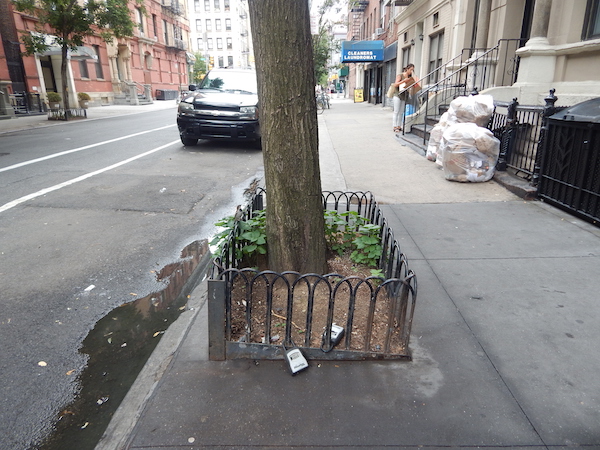
Speaking on background in an email, a spokesperson for the Parks Department noted that tree guards are under their jurisdiction — but current policy does not consider the presence of key keeper boxes to be an authorized use of Parks property.
David Moss, spokesperson for City Councilmember Corey Johnson, said in a July 14 phone interview that his office reached out to the 10th Precinct about the legality of cinching the key keepers to public property. The precinct, he said, would look into it, but it is legal as far as they know.
Johnson’s office also reached out to the Mayor’s Office of Special Enforcement (MOSE), which is tasked with oversight over illegal hotels (MOSE indicated they would provide a comment to Chelsea Now, but did not do so by the time we went to press for our July 21 issue).
Currently, there is legislation before Governor Andrew Cuomo, awaiting his signature or veto, which would make it illegal to advertise entire apartments on Airbnb. According to New York State’s multiple dwelling law, it is illegal to rent out a whole apartment for less than 30 days.
It would be “an enforcement tool against major violators of the law,” and MOSE would keep an eye on listings, said a spokesperson for New York State Assemblymember Richard Gottfried on background.
State Senator Brad Hoylman’s office did not respond to several requests for comment.
A July 18 search on Airbnb’s website found just over 300 listings for Chelsea. There were 214 results on HomeAway, and four on VRBO. One listing on Airbnb for W. 21st St. near Eighth Ave. was for a “big living room and bedroom” for the nightly rate of 165 euros (around $182).
From June 1, 2015 to June 1, 2016, there were 41,373 total listings in Manhattan, according to Airbnb’s “One Host, One Home: New York City.” There were 4,676 total listings in Midtown Manhattan and 16,586 for “Other Manhattan,” according to Airbnb. The company’s data did not break down to specific neighborhoods.
Chelsea Now asked Airbnb via email about the company’s response to residents who are worried about their safety if the lockboxes are comprised, and by the increased frequency of people coming in and out of their building.
Peter Schottenfels, a spokesperson for Airbnb, pointed to the company’s announcement of a new resource for neighbors, launched May 31.
Concerned residents can go to tinyurl.com/j42aefj to “share specific concerns they might have about a listing in their community. These concerns could include things like noise complaints. From there, our team will review their concern and, if necessary, follow up with the host regarding the issue,” according to Airbnb’s website.
NOTE: This article was updated on August 3, 2016, to correct a typo in the Parks Dept. email that was referenced. The presence of key keeper boxes on tree guards is an unauthorized use of Parks property.











